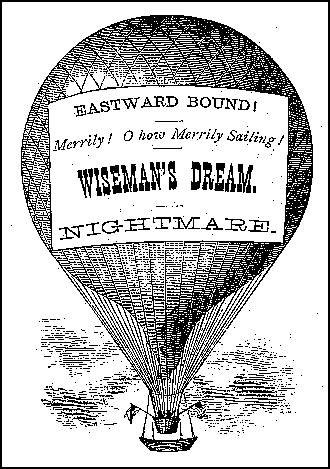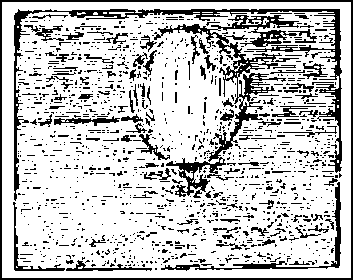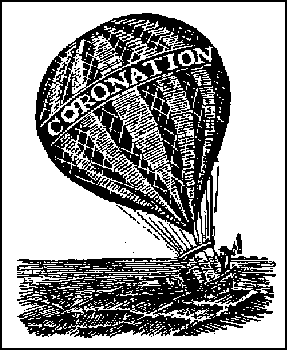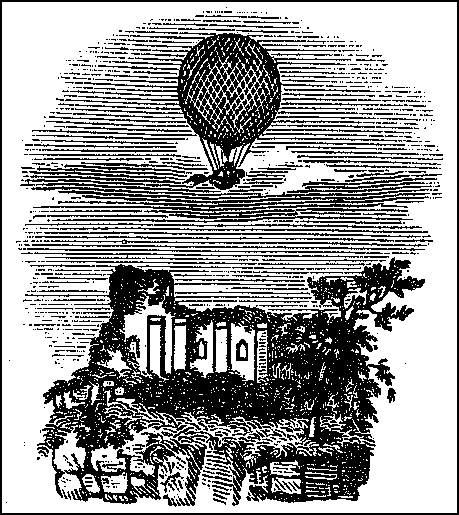Which Art
In Heaven

Here I am sitting in the Plaza de Libertad, minding my own business, watching the balloon-man across the way. He has balloons in all sizes and shapes, floating bunches above his head. I favor the monstro, the monster head, a funny face with squiggly balloons sprouting over the top of it. I wonder how he forms it to make it look so - - - well - - - human.
"I have a brother in a wheelchair," she says. "He's a quad. That's why I'm asking." Throaty voice, no accent. She must be from the west. Colorado, maybe. A brother who's a quad. I've got a brother who's a quad. They always say that. Or: My grandmother had diabetes, they took off her leg right here (slicing motion across the thigh). We hear that a lot. My uncle's in a wheelchair. Viet-Nam. The non-specific description. Or the very specific: My dad is a stroke victim and his whole side is useless he uses a cane and we have to spoon-feed him twice a day. All these cripples. A world full of cripples. And we get to hear about all of them. As if we wanted to know, as if we really cared.
I always wonder why absolute strangers come up to me to tell me these stories about people I don't know, will never know. "I have enough troubles without this," I think. "They are just trying to reach out, the only way they know how," I tell myself. You're not alone, they are saying, sure that I feel alone. I know someone who's just as bad off as you, they're saying. Don't you feel better now? they wonder.
Maybe I am softening. I don't pretend I'm a deaf-mute anymore, when they start in on their relatives. Nor do I pretend that I speak no English, like I did for some time. "Lo siento - - - no entiendo los gabachos," I would say. ("Sorry, I don't understand Americans.") There were other times, I have to admit, when I just looked them at them, and said "Oh?" or, nodding my head, "Mmm." Then I could let it die.
All these years have probably softened me, made me more willing to listen: People hurting, everywhere people hurting. This lady hurting, with whatever it is that our families feel: angst, maybe; fear, possibly; guilt, certainly.
"Anytime anyone talks to you," Stephen Gaskin used to say, "it's God talking to you, telling you something you need to hear right now." But sometimes I wonder if the words are garbled, the messenger a little befuddled. What to respond? I know, in 1952 or 1966 or 1974 or even ten years ago you couldn't get a whisper out of me on this "my brother's a quad" business. Now, it's different. I'm not exactly sure why, but it is.
Maybe I should change the subject, tell her about my workers. Ángel has been working for me for almost twelve winters now, his cousin started eight years ago, Jesús last year. They take me about Puerto Perdido, to the beach to swim, or down to the Tonameca River. They get me out of the car and down to the water and then back out again, rinsed off, back into the car, home again. They buy my food for me at the public market (mostly inaccessible), help me to cook it (I'm learning to cook black beans and rice), help me eat it. "They help me a great deal, my workers," I say.
My workers. What does that mean? A couple of young people who are becoming part of my life here, so far from home. Ángel with his dark polished skin, his careful walk, his fine Mayan nose, his serene face. Chuy with his god's profile, right out of the Olmec statues. Jesús's eyes he rolls about when I ask him to do something . . . things he doesn't want to do. Like clean up the mess I've made. "It's not my fault," I tell him.
 They're fun to be with, the three of them and their friends - - - filled with that strange mixture of Mexican manhood and sentiment. They might be the best part of my stay here. Ángel, who makes me laugh when I am feeling blue. ¿Qué pasa, gabacho? What's going on, he'll ask, at those times when I want to stay in bed, don't feel like going out, don't feel like facing the world. Chuy and Ángel and Jesús manage, somehow, talk me into getting up in my chair, getting out. I don't protest, not too much. At this time in my life, I shouldn't be thinking those thoughts anymore, should I? Those old, those very old thoughts.
They're fun to be with, the three of them and their friends - - - filled with that strange mixture of Mexican manhood and sentiment. They might be the best part of my stay here. Ángel, who makes me laugh when I am feeling blue. ¿Qué pasa, gabacho? What's going on, he'll ask, at those times when I want to stay in bed, don't feel like going out, don't feel like facing the world. Chuy and Ángel and Jesús manage, somehow, talk me into getting up in my chair, getting out. I don't protest, not too much. At this time in my life, I shouldn't be thinking those thoughts anymore, should I? Those old, those very old thoughts.
I tell her a little bit about them. They teach me Spanish: "I'd have to pay Berlitz a fortune for the lessons they give me for free." At the same time, there are the frustrations. Mexico isn't set up for wheelchairs. Not many ramps, no curb-cuts. There are very few hotels that have rooms for the disabled. I had to scout out the three restaurants (out of twenty) in Puerto Perdido that we can get into without them having to pull me up or down steep stairs. I have yet to get over my unwillingness to be carried in and out of restaurants, bathrooms, banks.
It's a concession to being in a Third World Country, but with my helpers it's not such a big deal. They like showing off their strength - - - and they can be very funny about it. "Pinche Gringo," Ángel will say. "Fuckin' American!" He's not being cruel; it's a jest of pals."Pesa 400 kilos." That means he thinks that I weigh in at 850 pounds . . . when 120 is more like it. That's his way of telling me he likes me when he calls me Pinche Gringo.

I wonder about how he got to be a quad. The street turns dim and dusty. I can no longer see her face, only the outline, the tiny gold-speckled cross around her neck. She tells me about the drinking, and the general helling around when he was twenty. The drugs, the accident. "They didn't know whether he was going to live," she says. "He made it." She pauses. "I think he's a much better person for it," she says.
I look at the balloon man. He's standing under one of the few streetlights of Puerto Perdido. The light has just come on, and the balloons cast a dark cloud over him. There are so many balloons, straining up on their strings, and he's such a tiny fellow - - - so much so that I half expect to see him take off, in flight, floating away into the sky, rising up into the stratosphere. Our balloon-man which art in heaven.
"A much better person?" I say. "That's an awful thing to say," I say.
"I'm sorry?" She's not apologizing - - - she just doesn't get it, doesn't think she's heard me right.
"I can't stand hearing that sort of thing," I say. "Saying that he's a much better person for it." She turns her head to watch the balloon man. He creates his monsters right there, out of rubber and helium. He fills the balloons from the great bruised silver tank at his side, twists them into animal faces, or strange bodies, turning them this way and that. When he fills the balloons with the helium, it makes a raw, screeching sound. She sits down on the curb next to my chair. She's still wearing her dark glasses in the dark.
"I don't understand," she offers, " . . . but maybe I never will. I don't know. I just don't have your experience." She rattles on, telling me that she's a professional nurse, living there in Denver. She says that even with her training, the hardest job is learning to deal with her brother's body. "I'm a nurse by training. I've done caths - - - lots of times. And yet, nothing is harder for me," she says. She stops. Then: "He was the one that used to pick on me all the time when we were growing up, never had any time for me, called me 'stupid.' And now there he is, lying flat on his bed. Sometimes I have to do his cath in the morning. And he can't even cover himself up."
A little girl, she can't be more than five years old, is trying to push two boys, probably her brothers, up the hill, in a tiny scratched red wagon, complete with warped wheels. One of the boys, the older one, is yelling "Recio, recio! " (faster, faster!) The other one is just sitting there, at the front of the wagon, without a stitch on, digging the hell out of his ride. The girl can barely get it to move, what with the hill and all, and she's pushing with all her might.
I don't even know what I mean about that, I think. Maybe it's not up to us to judge that sort of thing. What is it they say? Only the gods can worship god. Only the gods can pass judgement on us - - - her brother, me - - - the two of us (in her eyes) not all that different.
Chuy is behind me, pushing back and forth on the wheelchair: slowly, rhythmically. There's a fiesta in Pinotepla. He wants to go, to check in on a young lady who he claims will be his next novia. He wants to get me over there because he knows that by ten, when things are starting to happen, I'll be drunk, insist on going home to bed. He doesn't want to miss a thing.
I've been to the Pinotepla fiesta before. The ground is sandy, people will be pushing in on my wheelchair from all sides. We'll get stuck in the dirt like always, people will gape. From two feet away they'll stop dead and stare. They always do. I'm probably the only six-foot gringo in a wheel-chair they've ever seen - - - possibly the only one they'll ever see in Mexico. We don't grow on trees.
Given all the bother, I probably wouldn't even go . . . if it weren't for the fact that when I'm there, I'm living. Going out in the world, being part of a world alive. And this lady wants to know if her brother in his wheelchair would be happy here. Sure, I want to tell her it'll be fine if he doesn't mind getting stuck, having people gaga staring at him, kids not moving, stopped just staring. It's all right, if you don't mind being a freak, I want to tell her.
But that's bitter; a lie. There aren't many of us around, and we're the object of curiosity; but it's a curiosity coming from some of the gentlest people in the world. I think of my times here, the agon that occasionally creeps up on me, despair at the inaccessible buildings, the places I can't even dream of getting up to, or down from; the times that my bladder is bursting and there's no place to go, and I want to yell at someone, anyone. And then Ángel, with his great wise serious eyes; or Chuy, dark Chuy, understanding, somehow, always figuring out what is going on, figuring a way for me to make it, to find the place I should go, finding it so that I won't go balmy.
"It's a whole different world down here," I say. "Your brother might like it," I think. "Or, then again, he might despise it. You can never tell. It depends on him, and how much he wants to get away from the north - - - spend the part of his life with people who are different, and who see him differently than you or the rest of the world will ever see him."
I think about what happened this morning, when I woke up. I was feeling blue, didn't much care about things, didn't want to respond to anything - - - and then Ángel started in pinching me, then ducked away when I tried to grab him. He saw I was turning a little pissy, and he wanted to be sure I got my daily quota of tickles and pinches. I wonder if the attendants in the United States (what do they call them? --- personal care attendants): I wonder if they are allowed to tickle their charges when they start to feel glum. Is that written into their job description? Must give a good thorough tickling when the patient starts to feel rotten.
"To me - - - they're gods, so I forgive them everything," I tell her suddenly. I think of Ángel, with his great round face, Chuy with the elegant Mayan stance, eyes straight out of the Orient: both so wry, so compassionate. "What do you mean by that?" she asks, moving her hands vaguely. Can get it across to her, I wonder: this nurse from the north, with her brother on his gurney, him and his cath; him and his new self . . . a persona that she may never get? To be here, I think: You have to be willing to leave so much behind. It's so different. Maybe it's all a form of love that lives only here, for those of us looking for it. "It's so very different," I say.
Over where the sun has died, there is a bare smudge of rouge, a burning off from far off. I look up at her. She's gotten up, brushing at her skirt. "It's hard for us to learn what they have to teach us," I start to say. The people here learn . . . so quickly and easily . . . no matter how unloveable we may be. We gringos - - - pinche gringoes . . . so much slower, so much more fearful. Up north, they may call it love. But, really, it's more like taking hostages . . . maybe.
All the while I'm still formulating whatever the hell it is I am supposed to be formulating for her, she turns, half-waves - - - is gone. I'm still preparing my carefully thought-out conclusions . . . and she disappears.
"He's a much better person for it." Jesus Christ! Where in the hell do they get that shit? It all puts me in mind of that funny line from Beckett. How did he say it? The trouble getting born? No, no. It was: The trouble with us . . . that's it: The trouble with us is that for most of us, we never had the chance to get born.
